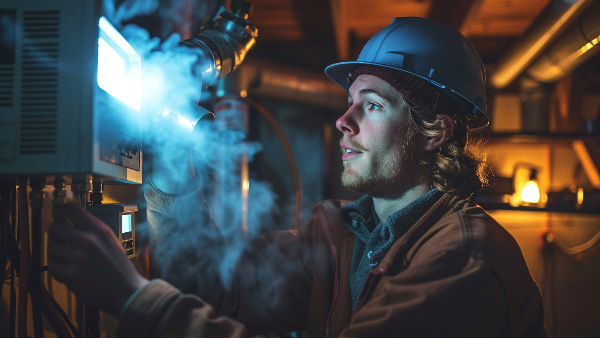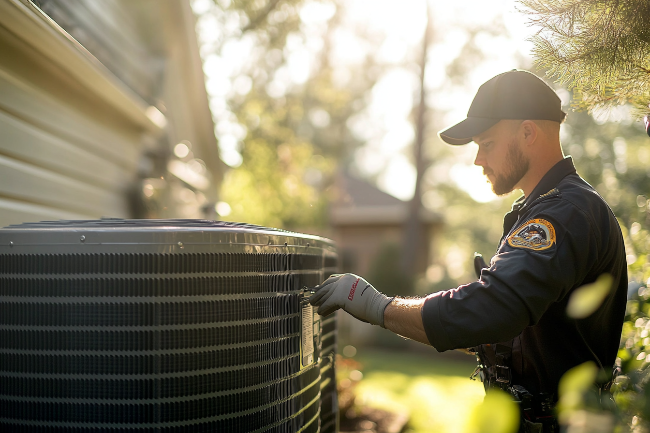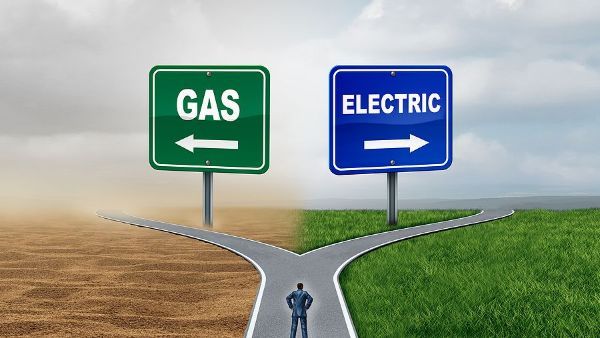Why You Need an HVAC Contractor for a Tripping AC Circuit Breaker
Tripping AC Circuit Breaker
Are you experiencing any of these issues with your AC circuit breaker?
- Every time your AC unit turns on, the AC circuit breaker trips.
- Your AC was on and running just fine, and suddenly the circuit breaker tripped.
- Every time you reset the circuit breaker, it just trips again.
A continually tripping breaker is frustrating. Why is it doing it? How can you fix it?
First, you need to stop resetting the breaker. Something is wrong. An AC breaker trips if it pulls in more amps than it's rated for. It will keep tripping until the issue causing it to trip is resolved. It is time to call out an HVAC contractor.
The Reason Circuit Breakers Are Designed To Trip
A circuit breaker trips when it detects an electrical fault that could damage the circuit. Think of it as a self-protecting circuit that also protects your home from fire depending on how much current is being drawn.
When a circuit breaker trips, it trips for a reason. If your AC circuit breaker trips, it is telling you that something is wrong.
1. Electrical Short
An electrical short might be causing your circuit breaker to trip. If a "hot" wire and a "neutral" wire contact one another while voltage is applied, it can result in an electrical short.
An electrical short typically occurs if a motor runs hot for a long time, like in your AC unit. It can damage the insulation coating the wires. If bare wires touch, it often allows too much electricity to flow through them, more than the wires can handle. The wires overheat, and the circuit breaker trips to prevent a fire.
An HVAC contractor can find the short and make any necessary repairs to your HVAC unit.
2. Broken Winding Inside the Compressor
Similar to an electrical short, if a motor's winding has broken and touches the inside of the compressor, the AC breaker will trip. This can be expensive since the compressor will likely have to be replaced. It might make more sense to replace the entire AC unit in some cases.
3. Compressor or Fan Is Drawing Too Many Amps at Start-Up
When a compressor is working correctly, it draws a lot of electricity to start. When it isn't working correctly, often from age, it draws even more electricity. This can cause the circuit breaker to trip when your AC unit turns on.
Your HVAC contractor can sometimes install a hard start kit to prolong the life of your compressor. However, it does mean you need to start looking into getting a new AC unit.
Improper care of your AC unit, such as allowing filters to become clogged, can cause the compressor to work harder. Even letting the outside unit get too dirty can wear out the compressor. Regular maintenance and cooling services can prevent your compressor from getting to the point where it keeps tripping the breaker.
4. Refrigerant Pressure Issues
If there is too much refrigerant in the system, the unit pressure can increase. This pressure causes the compressor to work too hard. Eventually, this will cause the AC breaker to start tripping as the compressor requires additional electricity to start.
An HVAC contractor will likely need to remove some of the refrigerant.
Another Possibility: A Bad Breaker
Sometimes an AC circuit breaker that keeps tripping has nothing to do with your AC unit. Over time, breakers can weaken and get to a point where they repeatedly trip. You simply need a new breaker.
If the breaker seems too hot, smells like it's burning or shows signs of damage, the problem is likely the breaker itself.
When To Call an HVAC Contractor
If your AC breaker keeps tripping, you need to call a technician to see what's going on with your unit. Trying to troubleshoot the problem yourself, you could cause further damage to your system or, worse, get an electrical jolt yourself.
Best case scenario with a tripping AC breaker, the technician determines it is simply the AC breaker itself. It is a relatively simple, inexpensive fix. Worse case? You're looking at a new AC unit. However, you won't know until you have your unit inspected.
Contact us today at (707) 228–9921 and make an appointment for an HVAC contractor to inspect and troubleshoot your system.









